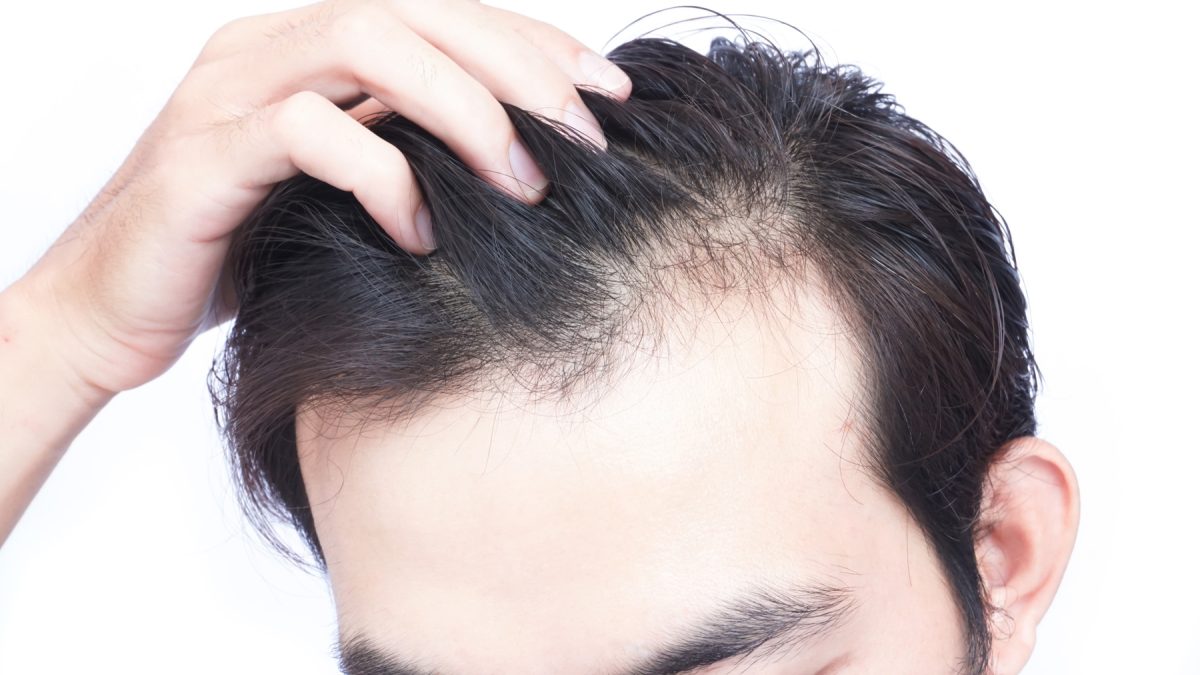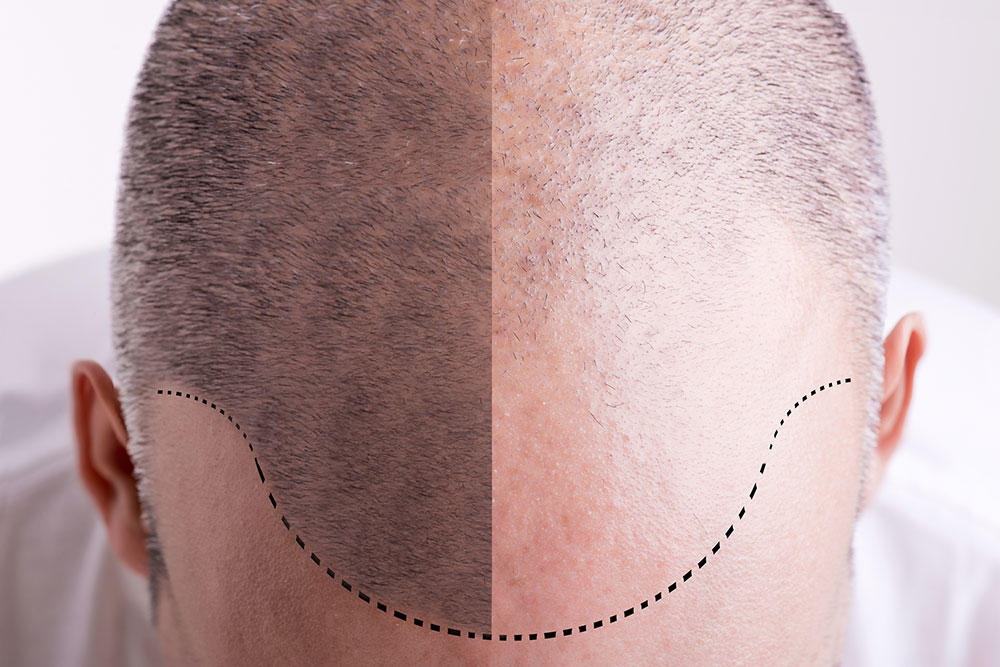What is Hair loss?
Baldness typically refers to excessive hair loss from your scalp. Hair loss (alopecia) can not only affect just your scalp but your entire body, and it can be temporary or permanent. Anyone can lose hair on their head, but it’s more common in men.
Hair loss is typically related to one or more of the following factors:
- Family history (heredity)
- Hormonal changes and medical conditions
- Medications and supplements
- Radiation therapy to the head.
- A very stressful event.
- Hairstyles and treatments.
Symptoms & When to see a Doctor
- Gradual thinning on top of head
- Circular or patchy bald spots
- Sudden loosening of hair
- Full-body hair loss
- Patches of scaling that spread over the scalp
Will a hair transplant work for you?
While age is not a barrier to having hair transplantation, a conservative approach is indicated to produce results which appear natural for the rest of your life. In many cases there are medical conditions and medications that can cause hair loss as a side effect. Finding an experienced Doctor who understands how to create a natural-looking, sustainable hair transplant design is essential to being pleased with your results.
What is Micro-Hair Transplant surgery like?
Most Hair Transplant procedures are performed on an out-patient basis, using local or twilight anesthesia. The procedure can usually take several hours to complete. Follicular-unit micro grafting is a procedure during which thousands of follicles are redistributed into the shinning or balding area. Once harvested from the donor area or sides or back of the scalp, hair follicles are microscopically dissected into grafts. Each micro graft contains a single “follicular unit” consisting if one to three on average hair follicles. Follicular-unit grafts are then carefully implanted into the bald or thinning “recipients” areas.
Meticulous artistic and technical skill is required to design an appropriate hairline, as well as ensure the appropriate angle, orientation and most importantly position of each transplanted hair.
What conditions does hair restoration surgery treat?
Hair implants may help with permanent hair loss caused by:
- Alopecia areata, an autoimmune disease that attacks hair follicles.
- Androgenic alopecia, or pattern baldness.
- Thyroid diseasesor hormonal imbalances.
- Traumatic injuries or burns.
What is the recovery process after hair transplant surgery?
Most hair transplants are outpatient surgeries, which means you can go home the same day as the procedure. Your recovery process will depend on the type of transplant you have. In the days after surgery, you may be able to:
- Day 3: Remove bandages, wash your hair, return to work and start light activities.
- After 3 weeks: Return to exercise or sports.




